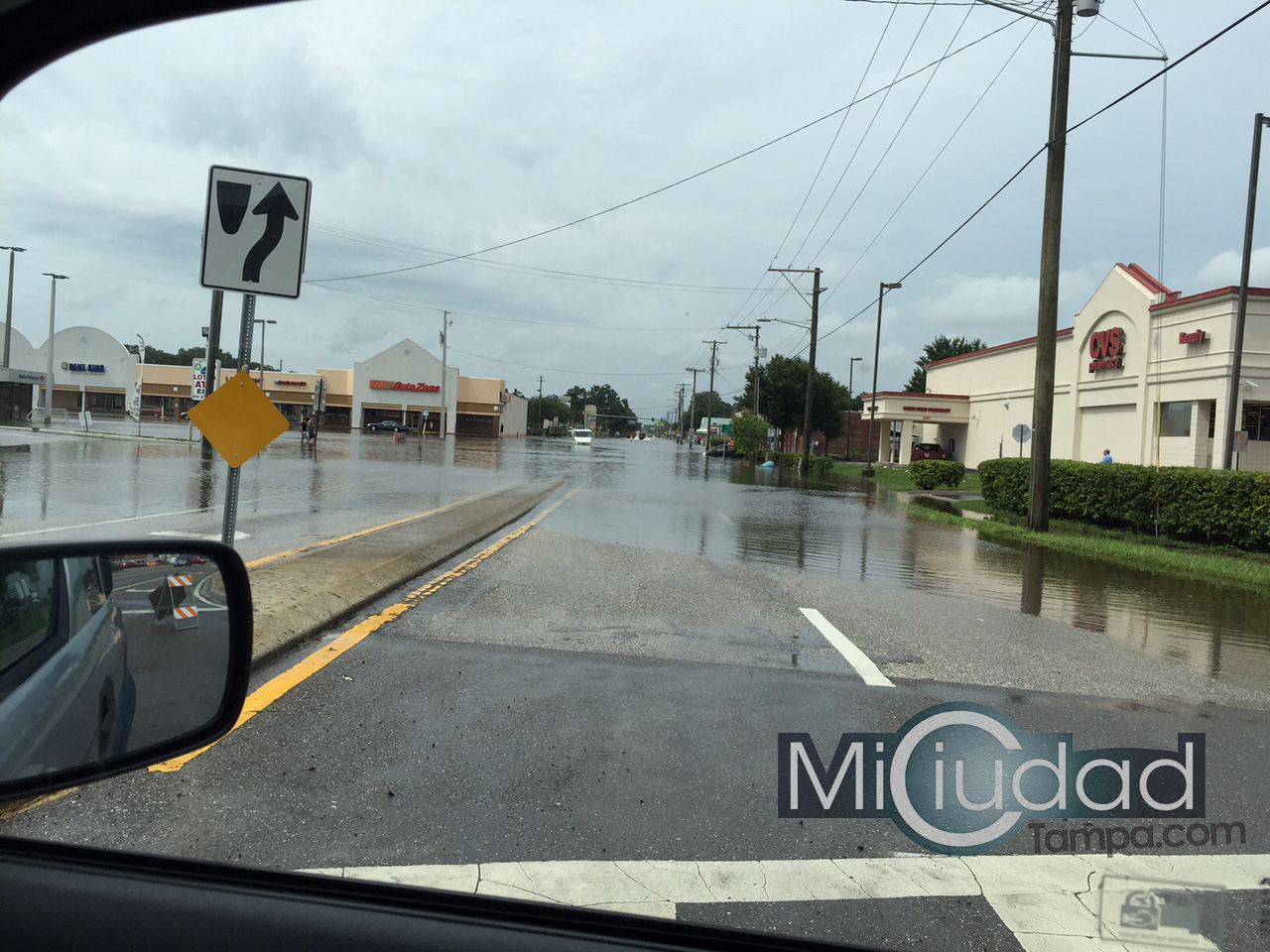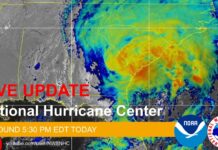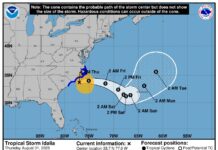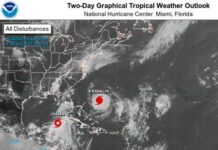TALLAHASSEE, Fla. – The Florida Division of Emergency Management (FDEM) encourages all those in the Tampa Bay area to use caution as flooding and standing water continue to pose health and safety risks. Use caution when driving through flooded areas and, avoid all unnecessary contact with standing water.
“Area flood waters will continue to present significant health and safety concerns for quite some time,” said FDEM Director Bryan W. Koon. “Flood water includes contaminates ranging from chemicals to raw sewage, so no matter how safe it may seem, you should avoid contact with any standing water you encounter – and please do not allow children to play in it.”
Flood Safety and Post Flood Clean-up
- Turn Around, Don’t Drown. Do not drive through or try to cross flooded roadways.
- Look before you step, as the ground and floors may be covered with debris. Floors and stairs that have been covered with mud can be very slippery.
- Avoid contact with downed power lines and electrical wires.
- Do not open manhole covers.
- Clean up debris to avoid injury and contamination.
- Operate chainsaws only in safe conditions (not in water soaked areas) if experienced in proper use.
- Lift heavy debris by bending knees and using legs to help lift.
- Wear shoes that cover the entire foot to avoid injury to the feet from glass, nails or other sharp objects.
- Be alert to wildlife (snakes, alligators, etc.) that may have been displaced during flooding.
- Heed posted signage near affected area waterways.
- Follow beach warning flags and do not swim if the beach is closed.
Sanitation and Hygiene: Preventing Waterborne Illness
- Always wash your hands with soap and water that has been boiled or disinfected before eating, after toilet use, after participating in cleanup activities and after handling articles contaminated by floodwater or sewage.
- Flood water may contain fecal matter from sewage systems, agricultural and industrial waste and septic tanks. If you have open cuts or sores exposed to the floodwater, keep them as clean as possible by washing them with soap and disinfected or boiled water.
- Apply antibiotic ointment to reduce the risk of infection. If a wound or sore develops redness, swelling or drainage, seek medical help.
- Do not play in floodwater as it may be contaminated.
- Do not allow children to play with toys that have been in floodwater until the toys have been disinfected. Use ¼ cup of bleach in one gallon of water to disinfect toys and other items.
Food Safety: Preventing Food-borne Diseases
- Do not eat any food that may have come into contact with contaminated water from floods or tidal surges.
- Commercially prepared cans of food should not be eaten if there is a bulging or opening on the can or the screw caps, soda pop bottle tops or twist-caps.
- Undamaged, commercially canned foods can be saved if you remove the labels and then disinfect the cans in a bleach solution. Use ¼ cup of bleach in one gallon of water; re-label the cans including expiration date and type of food. Assume that home-canned food is unsafe.
- Infants should be fed only pre-mixed canned baby formula. Do not use powdered formulas prepared with treated water. Use boiled water when preparing formula.
- Frozen and refrigerated foods can be unsafe after a flood. When the power is out, refrigerators will keep foods cool for only about four hours. Thawed and refrigerated foods should be thrown out after four hours.
The Atlantic Hurricane Season runs from June 1 – November 30. For the latest information on the 2015 Hurricane Season visit FloridaDisaster.org, and build your own emergency plan on the Get A Plan! website at flgetaplan.com. You can also follow FDEM on social media on Twitter at @FLGetAPlan, Instagram @flgetaplan, and on our Facebook pages at Facebook.com/FloridaDivisionofEmergencyManagement and Facebook.com/KidsGetAPlan.





